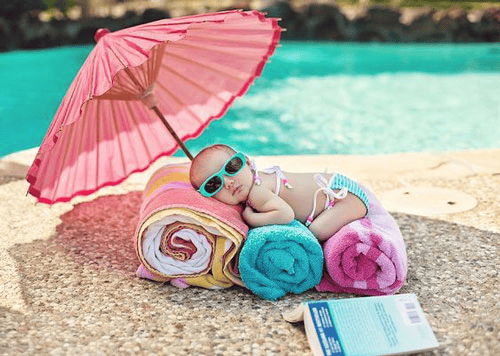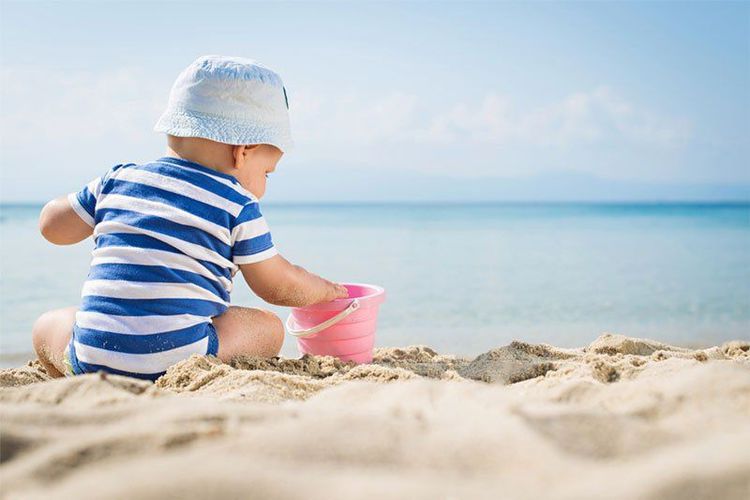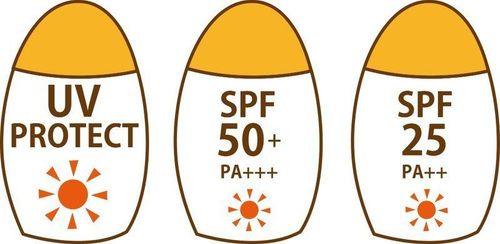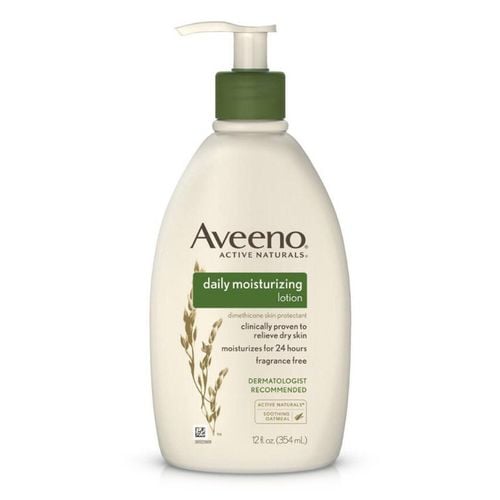This is an automatically translated article.
The article was professionally consulted by Specialist Doctor I Bui Thi Ha - Pediatrician - Neonatologist - Department of Pediatrics - Neonatology - Vinmec Ha Long International General Hospital.Ultraviolet or UV rays present in the sun have the potential to cause tanning, sunburn and an increased risk of skin cancer in both children and adults. Therefore, sunscreen for children is necessary whenever children are exposed to the sun. Sunscreen is recommended for both adults and children, but there are a few things to keep in mind when using sunscreen on babies. This article will answer the question of whether babies should use sunscreen.
1. Should babies use sunscreen?
Imagine the whole family is at the beach, and is applying sunscreen. A 5 month old baby is also there. Should I put sunscreen on my baby? The use of sunscreen on babies should be done infrequently, according to Hari Cheryl Sachs, a pediatrician at the Food and Drug Administration (FDA).Sachs said: “The best way to protect children is to limit sun exposure for children under 6 months and especially avoid sun exposure between 10 a.m. and 2 p.m., when ultraviolet (UV) rays have the strongest intensity”.
Sachs explains: “The skin of infants is less mature than that of adults, and infants have a higher surface area to body weight ratio than older children and adults.” “Both of these factors mean that infants need a larger dose of sunscreen, and the risk of exposure to the chemicals found in sunscreens can be much greater, increasing the risk of adverse effects. by-products of sunscreen”.
Sachs says: “The best protection is to keep children in the shade, if possible. “If natural shade is not available, use an umbrella or stroller cover.” "If there's no way to keep babies out of the sun, you should ask your pediatrician about what to do for your baby."

2. When should babies apply sunscreen?
Sunscreen can be used on children over 6 months old. Younger children should use other forms of sun protection.The best way to protect babies from the sun is to keep them in the shade as much as possible. In addition, parents should also let the baby wear protective clothing, a hat with a brim and sunglasses. However, make sure that the child does not get too hot or stuffy. Parents can also create their own shade by using umbrellas or tents.
If the child is older than 6 months, sunscreen is recommended. Choose a broad-spectrum sunscreen with an SPF of at least 30. Apply sunscreen generously to your baby's exposed skin and reapply every two hours - or more often if she's in the water. To avoid irritating your baby's skin and eyes, use a sunscreen that contains zinc oxide or titanium dioxide.
3. Some sun protection measures for babies
In addition to using sunscreen, the American Academy of Pediatrics (AAP) recommends that infants wear lightweight pants, long-sleeve shirts, and a hat with a brim that covers the neck to prevent sunburn. Tightly woven fabrics should be chosen over loosely woven fabrics. Remember that while baseball caps look cute, they don't cover a child's neck and ears, or sensitive areas. Therefore, babies should wear wide-brimmed hats when going out in the sun.Sachs says: “Children don't sweat like adults. “Sweat cools the rest of the body naturally when it feels hot, but babies have not yet fully developed that built-in ‘heating and cooling system. Therefore, parents need to make sure that the infant does not overheat.”
“In hot weather, babies are also at greater risk of becoming dehydrated. To make sure babies stay hydrated, give them breast milk or formula, says Sachs. "The water content in both types of milk will help keep them well hydrated."

Keep your baby in the shade as much as possible. Consult your pediatrician before using any sunscreen on your child. Make sure your child wears long-sleeved clothing and protects sensitive skin. If the fabric is so thin that you can see through it, it may not be enough to protect your baby's skin. Make sure your baby always wears a wide-brimmed hat to shade the neck. Monitor the infant carefully to ensure that he or she shows no warning signs of sunburn or dehydration. Some possible symptoms include fussiness, excessive crying, and a red rash. If your child is getting a sunburn, bring him or her into the shade immediately and apply cold compresses to the burned skin. Country! Give your baby formula or breast milk if they are out in the sun for more than a few minutes. Don't forget to use the refrigerator to store liquids, including milk.
Please dial HOTLINE for more information or register for an appointment HERE. Download MyVinmec app to make appointments faster and to manage your bookings easily.
Reference source: mayoclinic.org; whattoexpect.com













